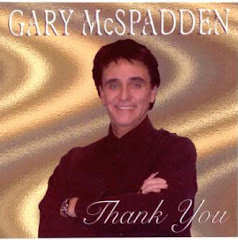Why a Video Will Help Sell Your BookA shopper who watches a video about a product is more likely to buy it.
We are all concerned with the steps necessary to market our work. We wonder about how to spend very limited marketing dollars. Our thoughts are contradictory, at times and frustrating. At times it seems like we are taking a stab in the dark, with funds that need to be spent with the utmost care.
Alan Rinzler has a bit about one emerging marketing trend that seems promising, through a well produced video trailer. It's worth the read.
http://www.alanrinzler.com/blog/2009/08/08/why-a-video-will-help-sell-your-book/by Alan Rinzler
That’s why publishers and video producers are rushing to collaborate on low-cost video book trailers. Publicists and marketing professionals believe these videos are the best new way to create the kind of buzz that attracts readers and sales.
In the past few months, publishers like Simon & Schuster, Harlequin, Scholastic, Wiley and others, have commissioned and produced hundreds of these short videos. They’re posting them on their own company websites, on Amazon, YouTube, author sites and blogs, and an expanding universe of multimedia and social networking sites.
Some of these book videos look like movie trailers, with high production values, location shots and paid actors. Some are just about the author, with talking heads and an interview at home about the book and how it was written.
Here’s one I love
This is a book trailer for New Confections of a Closet Master Baker by Gesine Bullock-Prado (Broadway Books/Random House Sept. 09). It’s about the author and her quest for meaning and purpose in her life, which she discovers by becoming a master baker and opening her own shop in Vermont where she creates pastry and cakes to die for. They’re so well photographed you’ll want to rush out and buy them, and the book.
A sudden trend
This new approach is part of the sea change in the industry’s turbulent and volatile efforts to sell books. Most of us generally agree that the old ways of marketing books has become prohibitively expensive and obsolete, especially in the current economy and declining retail sales in all sectors.
That full-page ad in the New York Times Book Review or the 30-second national TV spot on a show like Today or Front Line can cost tens of thousands of dollars with few tangible results. At the same time the DIY free-access culture of the internet has shown how powerful a three-minute YouTube video can be, careening around cyberspace in a few minutes if viewers pass it on to interested friends in their social network.
Book publishers are struggling to figure out how to survive and flourish in this brave new world of digital marketing. Many are now willing try something new.
At John Wiley & Sons, for example, we’ve already commissioned many such videos. The Dummies division at Wiley in particular, is using video trailers to market its books. Simon & Schuster’s CEO Carolyn Reidy, told me at Book Expo this year that she’s a big supporter of this recent initiative and has ordered dozens of videos for her various imprints. Jeff Gomez at Penguin is another strong advocate of this marketing tool.
We’ve also found that these book trailers are perfect as audition tapes for national broadcast and print media, and to generate author publicity and support the author’s direct-to-reader marketing efforts to drive sales and engage customers.
Growing book trailer industry
Video production companies targeting authors are emerging to produce book trailers. For example, Andrew Kaplan, Business Development Manager of the internet video company TurnHere, says they’ve produced about 500 book videos and is releasing three or four new ones every week.
Another producer, Scott Robinson of RFI films in NYC has been creating book videos directly with the author, most notably our own favorite discovery, Lenore Skenazy.
A quick search online turned up other players, including Living Jacket, Circle of Seven Productions, and Expanded Books. I don’t have any personal experience with these companies, so please do your own due diligence if you consider using their services.
If you’re a writer under contract, be clear about who’s paying for producing the video. If you don’t yet have a book publisher, consider doing something within your budget, either on your own or with professional help. The cost for such an effort can range from a few hundred to $5,000.
How can you make the best use of this new resource?
Watch as many book videos as you can and become familiar with the rapidly changing state of the art. To get started, check out BookScreening, a hub for book trailers submitted by publishers and authors featuring great examples of this new medium. Another big player in this arena is the book trailer channel at Barnes & Noble Studio. Search YouTube for book trailers, and you’ll find more than 50,000. And there’s Vimeo, with a roster of more than 200 book videos. Also take a look at The Book Trailer Blog, with interesting background and commentary about making and re-purposing book videos.
Book trailers tend to fall into two major categories: Some are like Hollywood movie previews, with professional actors playing out elements of the stories in actual locations, with good music, slick editing, and high production values.
Others are entirely author focused, with a writer explaining why and how they wrote the book, often speaking from home. The author might be sitting behind a keyboard, walking through a location associated with the book, or conducting an interview with an on or off-camera journalist or friend.
Readers want a relationship with the author
“Our experience and field surveys show that what potential readers want most is contact with the author,” Kaplan of TurnHere says.
“Book tours don’t often bring authors to neighborhood events anymore, but people still crave that personal touch, that sense of a real person they can get to know, that relationship between author and reader.”
What would work best for your book? Would you prefer to dramatize the story in an enticing manner, or talk about your work and how you did it?
Consider roughing out a preview trailer on your own. Do you have any video equipment at home? Do you know someone who would be willing to experiment and have some fun working on this with you?
“I’ve seen good book trailers that started as an amateur Flip camera version made by the author and then later redone with professional production values,” says Robinson of RFI films.
“Lenore Skenazy and her husband Joe, for example, did a first-draft video for her book Free Range Kids with consumer equipment and software. They wrote their own script. It had humor – which is important for many book trailers — and a lot of smart ideas for inserts and locations. So we re-shot the whole thing with better audio and editing. Humor, good sound and good editing can all make a huge difference.” See the final version on Amazon.
Is Amazon charging for placement?
Book trailer producers have told me also that one of the biggest challenges they face now in video marketing campaigns is placement. It used to be easier to get a video trailer posted on Amazon, for example. Now I hear they’re beginning to charge for posting a video on the first page of a book listing.
Kaplan at TurnHere says that Amazon is beginning to charge some of his clients a $1500 fee for posting on the first page of a book listing. A spokesperson for Amazon, who prefers to remain anonymous, told me that such a fee would depend on how much business the publisher does with them, and the status of an individual author.
I’m told that we’re not paying that kind of money at Wiley for posting on Amazon, but we may be getting credit for the volume of cooperative advertising dollars that a publisher makes available to major retailers.
If anyone out there has had direct experience with Amazon regarding placement of a book trailer, we’d love to hear from you.
The bottom line
Here’s the bottom line: Smart buyers do research online before making any retail purchase. Book readers are no different. If they’ve heard about a book, or read something by a writer they like, they’ll search for it. When they find an actual video, the research shows that people have an attention span of about 3 minutes.
Three minutes doesn’t sound like much. But that little book video could make a big impact in your ultimate sales.









